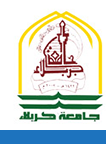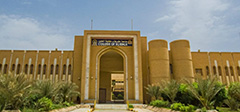Abstract
Breast cancer is the most prevalent malignancy in the world and the leading cause of female cancer-related mortality. Several ways for combating this entity have been proposed, but a significant and effective cure has yet to be established. Natural compounds originating from plants, including Citrus limon, are employed as alternative cancer treatments. In this study, we aimed to evaluate the immunomodulation activity of Citrus limon’s extract against breast cancer inci-dence in the mouse model. An in vivo study using female BALB/c mice served as the basis for this investigation. Four groups of eight-week-old mice, each weighing 20 grams, were randomized. The carcinogenic substance called 7-12 Dimethylbenz(a)anthracene (DMBA) was used to generate cancer in the experimental animal model. Several antibodies combination were used for the extracellular and intracellular staining experiments, including FITC-conjugated rat an-ti-mouse CD11b, PE/Cy5-conjugated rat anti-mouse IL-6, FITC-conjugated rat-anti mouse CD4, PE-conjugated rat anti-mouse CD8, PE-conjugated rat anti-mouse CD62L, PE-conjugated rat-anti-mouse TNF-α, and PE Cy5-conjugated rat-anti mouse IFN-ɣ. A one-way analysis of variance test was used to examine the relationship between flow cytometry data and the relative cell number. In this present study, we found that the induction of DMBA decreased the relative number of both naïve CD4 and CD8 T cells. On the other hand, the induction of DMBA increased pro-inflammatory cytokines such as TNF-α, IFN-ɣ, and IL-6. Interestingly, Citrus limon’s extract administration can directly change the immune system condition into the normal level in carcinogenic mouse model. Thus, this study suggested that Citrus limon’s extract ameliorative activity against breast cancer incidence warrants further investigation.
Recommended Citation
Putra, Wira Eka; Agusinta, Astrid Karindra; Ali Ashar, Muhammad Sultonun Arifin; Manullang, Vetti Adriani; and Rifa'i, Muhaimin
(2023)
"Immunomodulatory and Ameliorative Effect of Citrus limon Extract on DMBA‐induced Breast Cancer in Mouse,"
Karbala International Journal of Modern Science: Vol. 9
:
Iss.
2
, Article 10.
Available at:
https://doi.org/10.33640/2405-609X.3273
Creative Commons License

This work is licensed under a Creative Commons Attribution-Noncommercial-No Derivative Works 4.0 License.




